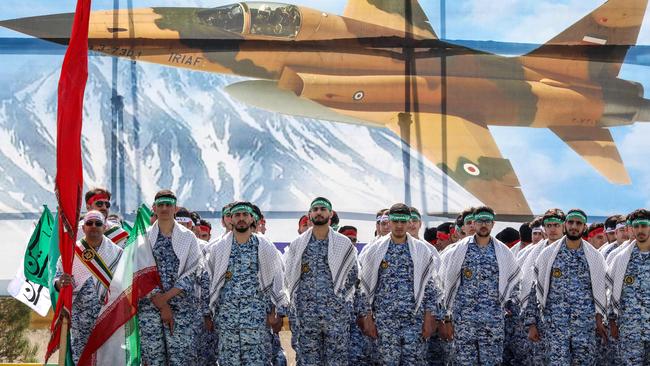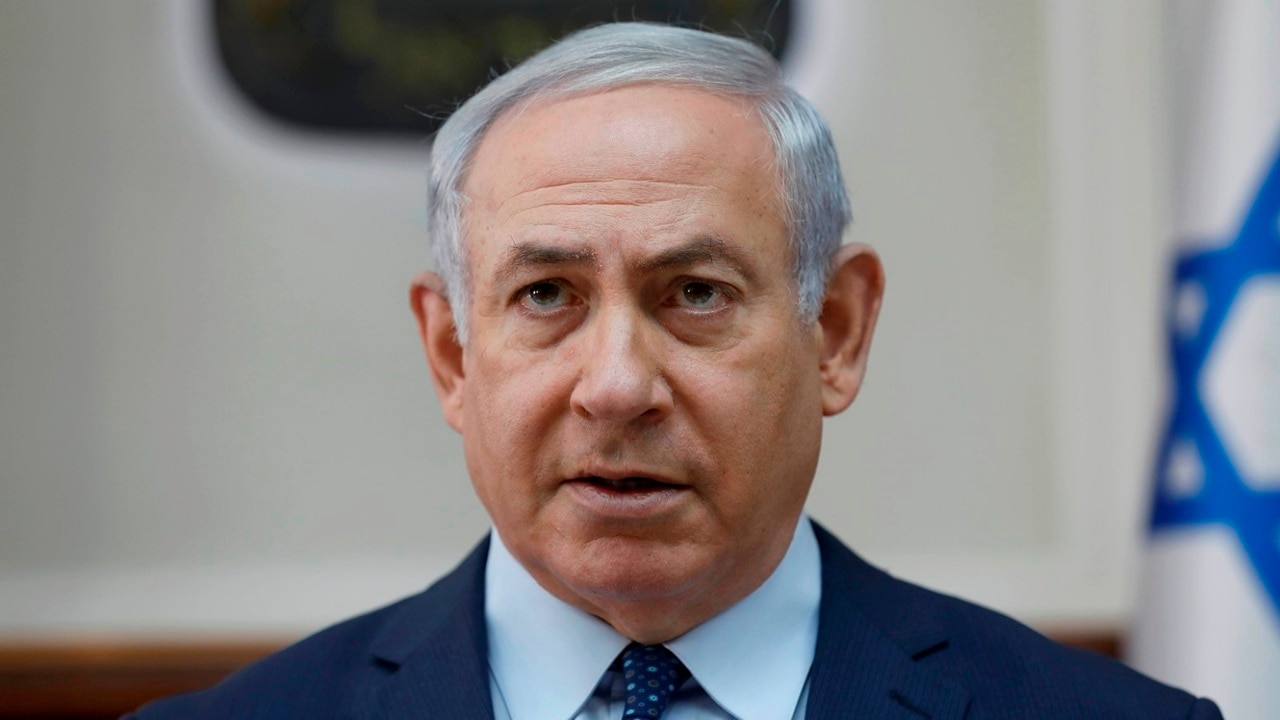Iran braces for Israeli retaliation as US and EU press for moderation
US and European nations are pressing Israel to moderate any response to Iran’s weekend assault, hoping to cool tensions.

Iran is bracing for a retaliatory attack by Israel on its territory or its proxies, as the US and European nations press el Aviv for a response that avoids an escalation in tensions caused by Tehran’s weekend missile and drone assault.
Iran said overnight on Wednesday it was readying its air force for strikes and its navy would begin escorting commercial Iranian ships in the Red Sea.
Tehran also has begun evacuating personnel from sites in Syria where its Islamic Revolutionary Guard Corps has a large presence, Syrian and Iranian officials and advisers said.
The IRGC and Iran-backed militant group Hezbollah have reduced the presence of their senior officers in Syria while mid-ranking officers are shifting from their original locations in the country, Syrian security officials said.
Israel has said it intends to respond, but officials are still undecided on the nature of the retaliation.
The Biden administration is encouraging Israel not to retaliate but be satisfied that a US-brokered alliance including Israel and Arab nations successfully repelled Iran’s Saturday assault, which included more than 300 attack drones and cruise and ballistic missiles.
British Foreign Secretary David Cameron and German Foreign Minister Annalena Baerbock were in Israel on Wednesday to meet Prime Minister Benjamin Netanyahu to reinforce that message of de-escalation. Addressing his cabinet afterwards, Mr Netanyahu said he told the diplomats that Israel “will make our own decisions, and the state of Israel will do everything necessary in order to defend herself”.
The shape of its response has the potential to expand Israel’s conflict in Gaza with Tehran-backed Palestinian group Hamas into a wider regional war, an outcome most sides appear eager to avoid, though fears are growing that Israel and Iran could misinterpret each other’s intentions.
To encourage Israel to limit its response, the White House on Tuesday said it would impose a series of economic sanctions on Iran, including on the IRGC and its missile and drone programs. Other sanctions could target its oil industry and its ability to raise government revenues.
In a sign Israel is considering the US and its allies’ message, Israeli officials assured Gulf states and other Arab countries on Monday that its response to Iran’s attack wouldn’t endanger their security and would likely be limited in scope. Israel is likely to warn its Arab allies before it retaliates and could limit its attacks to Iran-linked facilities in Syria, according to regional Arab officials.

Already, Iran’s IRGC has enacted emergency measures for its facilities across Syria. Some IRGC members have evacuated their bases in Syria and others are doing so at night when Israeli strikes are most likely. Only a few soldiers are staying behind to defend arsenals.
Iran-linked facilities in Syria are viewed by military experts as an option that would allow Israel to respond but avoid a spiral of tit-for-tat exchanges that lead to a broader conflagration.
Tehran, at the same time, has said it would respond to any Israeli action, signalling that it no longer wants to continue its decades-long shadow war with Israel — fought largely with its proxies — and will now engage directly. “The smallest action against Iran’s interests will definitely be met with a severe, extensive and painful response against all its perpetrators,” Iranian President Ebrahim Raisi said.
Israel already engages in almost daily exchanges of fire with Iran’s most potent proxy, the Lebanese militia Hezbollah. The Israeli military on Tuesday said it had launched airstrikes and killed two senior Hezbollah commanders and a lower-ranking operative who were involved in launching rocket and anti-tank missile attacks towards Israeli territory.
Hezbollah confirmed all three deaths.
In response, Hezbollah launched an attack on Wednesday on a northern Israeli town with a drone, injuring 13 troops, six of them seriously.
The recent exchanges with Hezbollah on Israel’s northern border are considered within the rules of engagement that the two sides unofficially set out at the start of the Gaza war, when Hezbollah began firing on Israeli territory but refrained from sparking a bigger war.
Hezbollah was on higher alert during the Iranian attack at the weekend, anticipating a simultaneous Israeli retaliation that could target Hezbollah positions, according to a person familiar with Hezbollah’s operations. The group has now lowered its threat level, as Hezbollah estimates Israel won’t hit it in Lebanon in response to Iran’s attack.
Instead, Hezbollah has received Iranian advice to take precautionary measures in Syria, as Israel could target IRGC bases, warehouses and Hezbollah posts there, the person said.
Iran closed its nuclear facilities at the weekend. They reopened on Monday.
The Wall Street Journal



